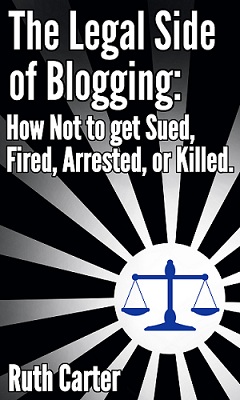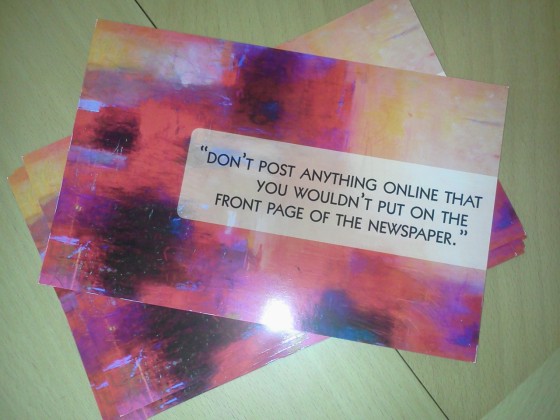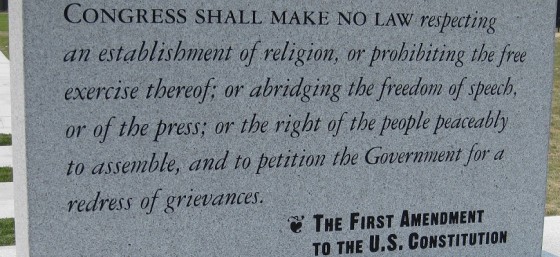
I was talking with some non-lawyer entrepreneurs lately, and I asked them what they thought would be the worst case scenario if their company broke the law via their social media, and they both responded that they would have to take responsibility for their mistake, apologize, and do some damage control. While I appreciate that these business owners appeared to have integrity and good intentions, I internally cringed that they both assumed that saying, “I’m sorry,” should be enough to fix a problem.
I want to share some numbers for the costs a business could easily face if they violate a law with their online posts.
Trademark Infringement – Cost of Rebranding
Think about how much time and money you’ve spent selecting the name for your business or product, your logos, your slogans, your domain, and your website. Now, how would you feel if you had to do it all again? That’s what could happen if you select a name for your business or product that’s already been registered by someone else in your industry. In the best case scenario, they’ll send a cease and desist letter and demand that you rebrand. In the worst case scenario, they’ll sue you for infringement, and you could be spending tens of thousands of dollars in legal fees and fines.
This is why I suggest companies check the U.S. Patent and Trademark Database for registered trademarks to verify the name or slogan they want to use hasn’t been claimed by someone else. I’m also an advocate of registering your trademark as soon as you can afford it, so no one can restrict your use of your own name or steal it from you.
Illegal Social Media Policy – at least $10,000
Every company needs a social media policy, but employers need to understand that a federal law called the National Labor Relations Act (NLRA) that protect union activities also apply to employees talking about their work – even in public online forums. If you fire an employee for violating the company social media policy and it turns out your policy violates the NLRA, you could be ordered by the National Labor Relations Board (NLRB) to pay the ex-employee back wages, damages, and offer them their job back. My friend who works on these cases says if you have to pay the ex-employee $10,000, you got off easy.
Copyright Infringement – $150,000 per Work Copied
Many business owners don’t understand that they can’t use any image they find via a Google Image search. There are even marketing “professionals” who will tell you that you can use any image you find online as long as you give an attribution and a link to the original. Both of these are excellent ways to commit copyright infringement. And photographers are becoming more savvy about protecting their rights so if you use their work they may send you a bill or a lawsuit instead of a cease and desist letter or a takedown notice. In the worst case scenario, you may face a lawsuit for $150,000 per image you used without permission.
Be careful if you outsource your content creation that your contracts clear state that the writer or artist who creates your content also indemnifies you if you are ever accused of copyright infringement because of something they created for your site or posted to your social media.
Defamation – $2,500,000
Defamation generally requires making a false statement about a person to a third party that hurts the person’s reputation. When I do talks about social media horror stories, I talk about a case where a blogger was sued for defamation because of one blog post and was ordered to pay him $2.5 million. 1 blog post. $2.5 million. (The case is currently up on appeal but I don’t think it looks good for her.) This is when little words matter because it’s easy to think you’re stating an opinion but your phrasing creates a statement of a fact – and if it’s a lie, it could be defamatory. Think before you post and check your sources.
 Please note, these numbers do not include legal fees you could face in addition to damages if you’re sued because of your social media posts. The legal issues listed above only scratches the surface of what wrongs a person or company can commit online. The good news is most of these problems are preventable with education and diligence. I strongly recommend you stay abreast of what laws apply to your social media postings and developments in this area of law.
Please note, these numbers do not include legal fees you could face in addition to damages if you’re sued because of your social media posts. The legal issues listed above only scratches the surface of what wrongs a person or company can commit online. The good news is most of these problems are preventable with education and diligence. I strongly recommend you stay abreast of what laws apply to your social media postings and developments in this area of law.
If you need a legal resource for laymen on this topic, I recommend my book, The Legal Side of Blogging: How Not to get Sued, Fired, Arrested, or Killed. It covers a lot of the major issues that apply to blogging and social media. If you want to chat more about this topic, feel free to connect with me on Twitter, Facebook, YouTube, LinkedIn, or you can email me. You can also subscribe to the Carter Law Firm newsletter.
Please visit my homepage for more information about Carter Law Firm.










